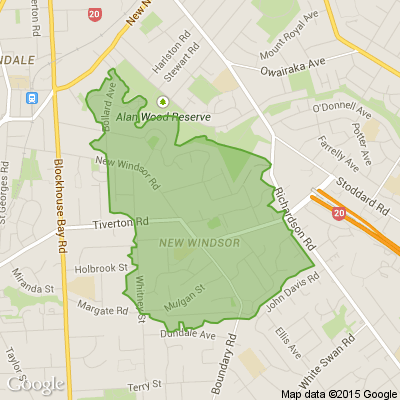I got a flu jab this year – so why did the flu still knock me out?
Getting a flu jab is not a silver bullet for avoiding the dreaded influenza – something Anna Murray found out the hard way a few weeks ago. So, why doesn’t the vaccine always work? She spoke to an immunisation expert to find out.
September came, and so did the flu.
I had smugly and successfully dodged the usual ills and chills all winter. But as soon as spring arrived on my doorstep, so too did influenza.
I felt many things over the 10 days my body fought the lurgy. I felt weak. I felt exhausted. I felt hot and cold with raging fevers. I felt random pains in my joints.
And I felt quite annoyed that I’d had my flu shot this year and thought I could skip all this.
When a flu jab fails
================
Now, with just the remnants of a cough left to remind me of that horror couple of weeks, I feel a bit stupid for thinking my flu jab would act like bulletproof armour.
Because as Principal Medical Advisor at the Immunisation Advisory Centre Dr Nikki Turner told me this week, no vaccine is going to protect 100% of people 100% of the time.
There are several reasons why a person who has had a jab still winds up getting the flu.
Sometimes this comes down to the educated guess work that goes into the composition of the flu shot each year.
The flu vaccine has components of four different types of influenza in it – two types of Influenza A and two types of Influenza B.
“Each year, there’s a decision made for the southern hemisphere and then for the northern hemisphere at predicting what the most likely circulating strains will be,” Turner said.
“So, every year they rejig the flu vaccine based on what they think will be the most likely circulating strains.”
Sometimes, the vaccine is not matched to the strain that winds up circulating.
“That’s not happened this year,” Turner said.
But even with a flu vaccine in the community that matches the circulating strain, New Zealand has had a big flu season.
ESR surveillance shows hospitalisations of people with severe acute respiratory illness (SARI) were higher over July and August this year than previous years.
And it’s not just the elderly with weaker immune systems having to go to hospital. Friends of friends my own age [redacted] have had to be hospitalised with their flu symptoms this season.
Different outcomes for different people
================================
Sometimes, people’s immune systems respond well to the flu vaccine, and sometimes, for a variety of reasons, they may not, Turner said.
For example, very elderly people often find their immune system doesn’t make as many antibodies ready to respond to the flu virus.
Other times, Turner said, the flu jab has done its job simply by keeping people from becoming severely ill. Contrary to my opinion that my flu jab had done absolutely nothing for me this year, it probably did create enough antibodies to stop me from winding up in hospital.
Despite briefly flirting with going to the after-hours clinic when my fever hovered around 40 degrees and wouldn’t come down, I ultimately didn’t need to burden an already stretched healthcare system with a hospital visit – and I can probably thank my flu jab for that, Turner said.
“Sometimes, you’ve got antibodies, and it stopped you getting severely sick - but you still get sick,” she said.
“Most of the time, for most of us, [the jab] does reduce the severity [of the illness], but for some people, for a whole lot of reasons, it just doesn’t work.
“We do know flu vaccines are never 100% effective all of the time – they vary from person to person. In younger, healthier people they should be more effective, but they’re still maybe 60 to 70% effective, so you’re talking about 30 to 40% of people who had the vaccine that it may not be effective in.”
Hospital admissions in Auckland this winter have been higher than last year as warnings go unheeded.
Turner said there are many factors that can determine how well a flu vaccine works for someone.
“We know stress affects it, we know poor sleep affects it, we know people’s housing conditions affect it,” she said.
The amount of virus you’re exposed to can also be a factor, which could be why my partner managed to dodge the flu this time while I suffered for days on end, Turner said.
“You might have got a greater inoculum [amount of viral particles that begin infection] than your husband,” she said.
“If you got a whole lot of virus at once, your antibodies are working really hard to knock it out, but there’s still too much virus – whereas maybe your husband got fewer virus particles at the same time.”
So, what to do to protect from flu?
===========================
The moral of the story here is that people can’t rely on the vaccine alone to stop getting sick with the flu, Turner said.
“Vaccines are just part of the protection against severe flu,” she said.
“They are definitely not perfect. We’d love better vaccines, but for the time being, they’re still better than not having them.
“We still need to protect ourselves in many other ways.”
Turner said this might mean trying to reduce exposure to the flu through winter and spring, including staying home if you become unwell.
Turner said she was also sad to see the end of the mandatory use of masks in certain circumstances.
“Personally, I'd be saying to all of us, if you're on the train or in a crowded place at the start of the flu season, wear masks, keep away from crowded places,” she said.
“And if you are exposing yourself to people who have problems with their immune system or very elderly people, think about protecting them.
“We also need the social protections around us, all the things we learned through Covid and we're now forgetting rapidly. Vaccines are only part of a bigger strategy.”
Improving the flu vaccine
=====================
Meanwhile, scientists are still trying to make better vaccines, Turner said.
“For years, they’ve been trying to make one vaccine to cover all flu strains. They haven’t cracked that one, but that would be great; that’s the holy grail of flu vaccines,” she said.
Adjuvanted vaccines have also become available for older people, whose immune systems don’t respond as well to the regular flu jab. The adjuvant helps drive a stronger immune response.
“There’s a whole lot of other fancy new technology out there to try and improve flu vaccines,” Turner said.
“Because flu vaccines are really, really old. They've been around for years and years and they work, but they're not brilliant, they don't work for everybody. We do need better vaccines.”
=============================================
www.1news.co.nz...
=============================================
Scam Alert: Fake information regarding December Bonuses from MSD
The Ministry of Social Development is reporting that fake information is circulating about new ‘December bonuses’ or ‘benefit increases’
If you get suspicious communication, please contact Netsafe.

Jetstar Christmas sale launches with 45,000 cheap fares from $48
Jetstar has launched a Christmas sale with 45,000 discounted domestic and international fares across 13 routes.
The airline’s Christmas sale began just after midnight, with one-way domestic fares available from as low as $48 and international fares from $142.
Travel dates vary per route but include early March to early September for domestic and early February to late August for international.
Jetstar’s head of New Zealand, Shelley Musk, said the airline was prepared for a record summer of flying in New Zealand.
“We’re gearing up for our busiest Christmas and New Year peak ever, with almost 700,000 customers expected to fly to and from New Zealand over December and January,” she said.
Air New Zealand estimated 1.6 million passengers will be travelling domestically around New Zealand this summer season.
“Queenstown will see 260,000 customers travel to and from the region while Nelson is gearing up for 150,000 customers, and Dunedin 110,000,” Air New Zealand general manager airports Kate Boyer said.
Boyer said the busiest day for domestic travel is Friday, December 19 with up to 32,000 travellers expected to fly, followed by Sunday 21, Monday 22 and Tuesday 23, with up to 31,000 customers taking to the skies each day.
This year, Jetstar launched five new domestic and transtasman routes, including Hamilton to Sydney and Christchurch to Cairns, while Hamilton to Christchurch and Brisbane to Queenstown flights will commence next year.
Jetstar’s domestic routes on sale
============================
● Auckland to Wellington from $48
● Christchurch to Wellington from $52
● Christchurch to Hamilton from $53
● Wellington to Queenstown from $53
● Auckland to Christchurch from $59
● Auckland to Dunedin from $72
● Auckland to Queenstown from $72
Jetstar’s international routes on sale
==============================
● Hamilton to Sydney from $142
● Auckland to Sunshine Coast from $162
● Hamilton to Gold Coast from $169
● Dunedin to Gold Coast from $179
● Auckland to Rarotonga from $189
● Christchurch to Cairns from $199
=====================================================
Neighbourhood Challenge: Who Can Crack This One? ⛓️💥❔
What has a head but no brain?
Do you think you know the answer? Simply 'Like' this post if you know the answer and the big reveal will be posted in the comments at 2pm on the day!
Want to stop seeing these in your newsfeed?
Head here and hover on the Following button on the top right of the page (and it will show Unfollow) and then click it. If it is giving you the option to Follow, then you've successfully unfollowed the Riddles page.








 Loading…
Loading…